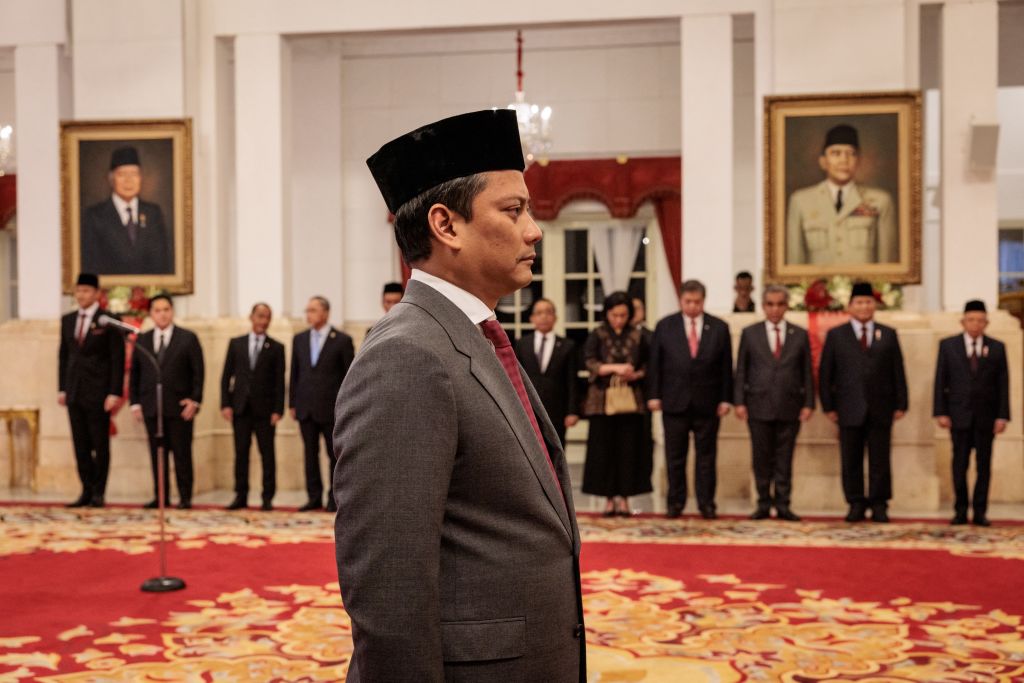In recent years, Southeast Asia has faced significant challenges in its democratic processes. Thailand’s 2014 military coup and the recent court-ruling ordering the dissolution of the Move Forward Party led to an ostensibly democratic government viewed as authoritarian. Malaysia, once seen as a promising democracy, has been plagued by political scandals and claims of electoral manipulation. In the Philippines, the election of Ferdinand Marcos Jr and Sara Duterte into presidency has raised discussions about the concentration of political power within established political families. Against this backdrop, many question whether Indonesia will follow suit.
Having overcome great obstacles, Indonesia’s position on the Freedom House democracy index continues to slip backwards. In the recent 2024 presidential election, President Joko Widodo (Jokowi)’s son, Gibran Rakabuming Raka, was paired as Prabowo Subianto’s vice president candidate through a controversial Constitutional Court decision that altered the age criteria of candidacy. The two won the elections, marred with allegations of election fraud and nepotism.
Jokowi recently inaugurated Thomas Djiwandono, Prabowo’s nephew, as Vice Minister of Finance. Meanwhile, Bobby Nasution, Jokowi’s son-in-law, is currently nominated to run for Governor of North Sumatra via the support of Gerindra (Gerakan Indonesia Raya, Great Indonesia Movement), a party founded by Prabowo, which won third place in the last parliamentary election, gaining 13.2 per cent of national votes.

A healthy democracy requires strong opposition. But to foster such competition requires a shift in political culture.
As a local scholar has argued, Indonesia’s democratic processes have historically been formed by pragmatic quid pro quo collaboration between elites. No political party in Indonesia really holds onto ideological principles in deciding its political stance on public policy. Only two parties are viewed as having distinct ideologies: the nationalist-leaning Indonesian Democratic Party of Struggle (PDI-P) and the Islamist-leaning Prosperous Justice Party (PKS).
These two parties are often considered the country’s remaining opposition. However, PKS recently endorsed Bobby Nasution (Jokowi’s son-in-law) as a candidate for the Governor of North Sumatra. PDI-P is still undecided, having had a messy fallout with Jokowi, a one-time member.
Civil society groups have served a substantive opposition role, having consistently criticised Prabowo’s campaign for his past record of human rights violations during the country’s 1998 uprising against the former Suharto regime, and Gibran’s decision to become Prabowo’s running mate while his father was still in power. But these civil society groups suffer a power imbalance against the ruling coalition.
They also face another crucial challenge: to remain relevant and appealing, particularly to Indonesia’s young electorate, in the midst of growing social media use by established political players.
An opposition must offer an alternative … not about demonizing populist politicians but presenting a nuanced alternative that inspires hope and optimism and somehow dominates the algorithm.
For the first time ever, more than half of the eligible voters in Indonesia are aged between 17 and 40. This makes Millennials and Gen Z a decisive force in shaping the future of Indonesian politics. This demographic is diverse and highly demanding. Appealing to these digital natives, with Indonesia ranking high in the world for social media use, means employing more than just traditional ideological rhetoric – this demographic wants a vibrant and engaging approach, real solutions, and are hungry for hope as well as entertainment.
The opposition cannot just have good ideas, they must also have national “rizz” (as the young people would say).
Ironically, Jokowi showed the way. His tilt for the presidency was presented via a “new hope” agenda, along with his rock concerts and informal checked shirts. Like Barack Obama's earlier presidential campaign in the United States, both leaders effectively utilised social media to engage younger voters and promote their policies.
Similarly, recent campaigns by Prabowo and Gibran demonstrated the growing importance of digital engagement in political contests. Utilising platforms such as TikTok and partnering with influential figures, they successfully reached a diverse and youthful voter base.
A strong and effective opposition cannot simply criticise the status quo. They must offer an alternative, a campaign that induces optimism instead of cynicism, with showmanship that promotes truth and democratic values. It’s not about demonising populist politicians, but presenting a nuanced alternative that inspires hope and optimism and somehow dominates the algorithm.
Indonesia’s trajectory will have implications beyond its borders. As Southeast Asia's largest democracy, its success or failure in upholding democratic principles will influence neighbouring countries. A robust Indonesian democracy could inspire pro-democracy movements across the region, countering growing authoritarianism in places such as Thailand and Malaysia. Conversely, if Indonesia continues to backslide, it could embolden authoritarian leaders in the region and diminish hopes for democratic progress.
This gives Indonesia’s upcoming regional elections, or Pilkada, significance far beyond the nation’s borders. Expected in November, the Pilkada is a second test for Indonesia to see the emergence of an alternative powerbase that can hold the ruling coalition to account. Held simultaneously in 545 regions, consisting of 37 provinces, 415 regencies, and 93 cities, these elections offer an important chance for Southeast Asia to illustrate whether democracy can thrive in a region where it has been increasingly challenged.
In the words of young people, Indonesia’s democracy cannot take another L.

